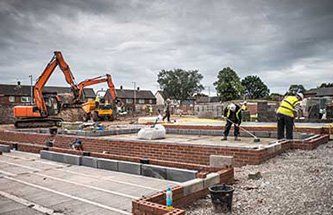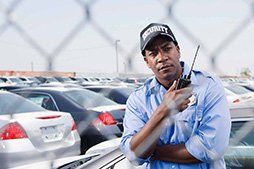When planning a large event, security should be one of your highest priorities. Along with planning the guest list, food, venue, décor, and music, you will also need to consider how to prevent potential risks to your guests' safety.
The easiest way to protect your guests is to plan in advance for security risks. Here are some security planning tips to consider when crafting your amazing event.
1. Assess Risks
Risk assessment is the starting place for proper security planning. You might think your guest list or event is low-profile, but most large events come with risks that people don't often consider.
The Nature of the Event
Are you launching a product? Is the event for a musical group, a grand opening, or a life event? The nature of the event will define the types of people who attend. For example, at a musical performance, you may have overly excited fans who set off firecrackers or noisemakers inside the event hall, scaring the guests into a panic.
Crowd Control
Is the event open to the public, or was there an RSVP list that predetermined the number of guests? If the number of attendees is not set in stone, you open up the possibility of needing crowd control or finding a venue that will not violate fire codes.
Money and Coins
Are you accepting cash at the door of the event? How will this cash (and the people handling it) be protected from potential thieves? These are important factors to consider as you plan your event.
Event Location
Is the location close to public transportation, or will more people drive their own vehicles? Is the event on the second or third floor of a building, making it difficult for people to get to safety in an emergency?
A professional and experienced security company can help you fully develop a list of risks based on the particulars of your event. You should have enough personnel on staff to handle the worst-case scenario.
2. Assume Protestors Will Attend
Almost every large event, no matter what it’s for, will draw protestors. An event at the zoo celebrating a new exhibit will bring out animal rights activists. A religious convention will draw other spectators who disagree with the religion. No matter how docile the event (even a wedding), if the guest list is large, always prepare to deal with protestors – just in case.
3. Have All Staff Memorize a Map
In a crowded convention center, an incident such as an active shooter or a fire can cause mass panic. All of your hired staff should have a map of the venue memorized to lead the way out of the building.
Even if these rare situations don't occur, having exits, halls, and entrances memorized can help prevent guests leaving through doors they shouldn't. It can also protect other areas of the venue that are off-limits, such as offices and stairwells.
4. Search Everyone
For events that have a particularly high risk, such as political speeches, conventions, character- and film-based fan events, and other controversial events, you should inform guests that everyone will be searched upon entrance.
Hire enough staff to make sure this is possible. This method is more effective than random searches throughout the evening because it discourages weapons from even entering the event. You might make additional rules, such as allowing no large packs, external food, or liquids.
5. Hire Additional Security Well in Advance
Finally, one of the biggest security mistakes comes from not hiring enough security in advance. A few days before the event is not enough time to prepare properly, especially if you have high-profile guests or speakers attending the event.
Entrances and exits should be coordinated for the safety of attendees, and this can only be done with extensive planning and understanding of the weak points in a building and the risks of the event itself.
Contact the experts at Protection Plus Inc. for more information on securing your next event.






